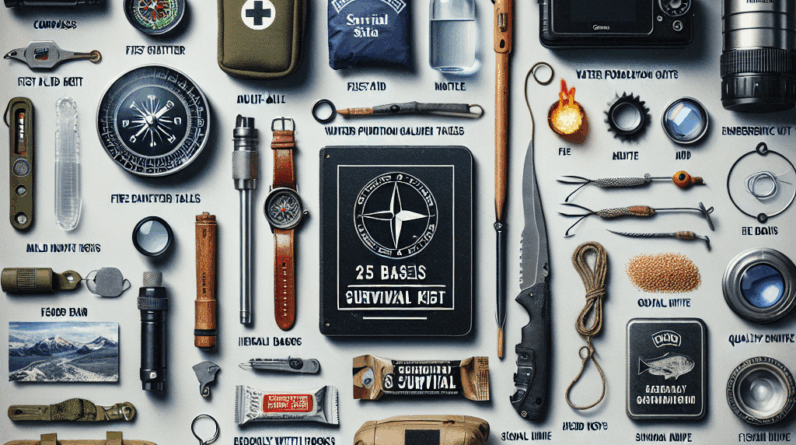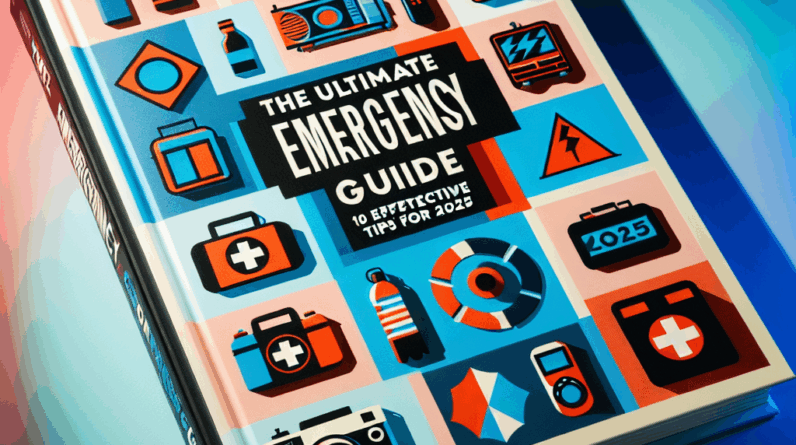Urban environments present unique challenges and dangers, making it essential to equip oneself with advanced survival skills. This guide delves into the crucial tactics needed to navigate city life safely, encompassing situational awareness, emergency preparedness, conflict management, and community engagement.
Situational Awareness
Understanding your surroundings is pivotal in urban survival. It’s vital to be vigilant, whether walking along bustling city streets or relaxing in a café. Observing potential exits, hazards, and any unusual behavior is a proactive way to ensure safety. This approach is akin to playing chess, where anticipating the opponent’s moves is key. Regularly questioning how you would react in an emergency sharpens your alertness and preparedness.
Minimizing distractions, such as mobile phones, is also crucial. Engaging fully with your environment enhances your ability to notice and react to potential threats, thus boosting your situational awareness.
Reading Body Language
Developing the skill to interpret people’s body language significantly enhances your ability to preemptively recognize and avoid potential threats. Signs of agitation or distraction in others can alert you to danger before a situation escalates. It’s important to trust your instincts—if something feels amiss, it likely is. This awareness isn’t about paranoia but about smart, strategic interaction with your surroundings.
Building a Safety Network
Establishing a network of trusted individuals is a critical safety strategy. Keeping friends and family informed of your whereabouts, and vice versa, creates a safety net that can prove vital in emergencies. Participating in local community groups also connects you with like-minded individuals, reinforcing your safety with the support of a community. Moreover, having a predefined emergency plan with your loved ones enhances the effectiveness of your safety measures.
Emergency Preparedness
Creating a Grab-and-Go Bag
A well-prepared emergency bag is essential for urban preparedness. This bag should include necessities such as first aid supplies, non-perishable snacks, water, and a flashlight. Regular updates to your emergency kit ensure that you are always ready for unexpected situations, providing peace of mind.
Learning Basic First Aid
Basic first aid knowledge is indispensable in emergencies. Skills such as CPR, wound dressing, and managing severe allergies can make a significant difference while awaiting professional medical help. Attending periodic first aid training sessions keeps you informed and ready to assist when needed.
Understanding Emergency Contacts
Keeping a comprehensive list of emergency contacts and familiarizing yourself with local emergency services is crucial. Writing down important phone numbers ensures you can call for help even if your digital devices are unavailable. Knowing the locations of nearby hospitals or shelters can save critical time during an emergency.
Conflict De-escalation Techniques
Using Effective Communication
Effective communication is vital in de-escalating conflicts. Maintaining a calm demeanor and using a steady, soothing tone can prevent situations from escalating. Being mindful of your non-verbal cues, such as body language and facial expressions, also plays a crucial role in keeping interactions non-threatening.
Knowing When to Walk Away
Recognizing when to remove yourself from a volatile situation is a key safety strategy. Trusting your instincts and choosing to disengage can prevent unnecessary risks and allow for a cooler-headed reassessment of the situation later on.
Practicing Mindfulness
Mindfulness techniques can be invaluable in managing stress and maintaining clear-headedness in tense situations. These practices help you respond thoughtfully rather than react impulsively, empowering you to handle conflicts more effectively.
Community Engagement
Building Relationships with Neighbors
Knowing and interacting with your neighbors is a proactive approach to urban safety. A close-knit community can act as a support network and a deterrent to potential threats. Regular communication with neighbors not only fosters a sense of community but also enhances mutual safety.
Participating in Local Initiatives
Engaging in local safety initiatives and community meetings can significantly contribute to the security of your neighborhood. Such engagement promotes a collaborative approach to safety, pooling resources and knowledge for the benefit of all residents.
Sharing Knowledge and Resources
Educating others about urban survival skills multiplies the overall safety of your community. Sharing insights and strategies through various platforms not only informs but also empowers your community, creating a safer environment for everyone.
FAQ
1. What is situational awareness, and why is it important?
Situational awareness involves being acutely aware of your immediate environment and being able to identify potential dangers. This skill is essential for effectively addressing and avoiding hazards in urban settings.
2. How can I create my grab-and-go bag?
Begin by including essentials such as water, snacks, first aid supplies, and a flashlight in your bag. Ensure it’s lightweight yet comprehensive, and regularly check its contents to maintain its readiness.
3. What are some basic first aid skills everyone should learn?
Everyone should know CPR, how to treat wounds, and manage common emergencies like allergic reactions. Attending a local first aid course can provide you with these crucial skills.
4. How can I practice conflict de-escalation techniques?
Practicing effective communication, being mindful, and recognizing when to exit a situation are key strategies. Implement these techniques regularly to enhance your ability to manage conflicts.
5. Why is community engagement vital for safety?
Community engagement strengthens the collective security and support network of a neighborhood, making it a safer environment. By fostering trust and cooperation, community engagement enhances the overall safety and well-being of all members.




